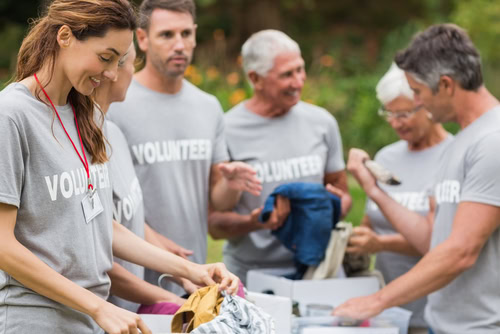4 Unique Ways To Give Back To The Recovery Community

A common suggestion for giving back to the recovery community is being a “sponsor” to someone in a twelve step program. Twelve step programs, meetings, and sponsorship, might be part of your personal program of recovery, or it might not. It is important you create a lifestyle of recovery which personally works for you. Even if twelve step programs are part of your recovery, you will want to consider being a mentor to other professionals in your field who are also in recovery. One of the great things about sponsorship and mentorship is finding a connection with others who are in need. Your professional occupation in life positions you to be a unique mentor to someone in recovery who is also in your field. Few could understand the specifics of your job’s demands, your industry’s culture, and the challenges of substance abuse, as well as getting sober, as you can.
Donate to recovery organizations supporting professionals
Making the time to give back to others is important for recovery. Your career path and recovery path may not necessarily allow the time you need to fully invest in mentorship for others. You can always give back in monetary donations or sponsorships because funding is deeply needed for recovery. To take it a step further, you could start your own foundation or organization which specifically looks to direct funds toward researching and supporting addiction or mental health in your industry or profession.
Inform your personal community about addiction and alcoholism
Setting up and running a foundation is a big investment of time as well as money. Instead, you can be a source of information in your personal community about addiction and alcoholism. You don’t have to give big talks or presentations, unless you want to. Just by being open about your recovery, your experiences with addiction, as well as treatment, you do an incredible service for your community. People are severely misinformed about addiction and need reliable sources of information, like those who have been through it personally.
Become a resource in the workplace for mental health support
Be careful not to take on too much with your newfound source of empathy and compassion. There is such a thing as empathy burnout for those in recovery. You’ll want to give to everyone in every way possible because of the recovery you have been able to find. Tell your fellow coworkers that you are available to talk and guide the through mental health issues. Remember that though you are a professional in a field, you are not necessarily a professional in the mental health field- even though you may be. If you are a mental health professional, your coworkers or members of your immediate community are not your patients. Offering the most insight you can with care and compassion, then always recommend professional help.
Let the Intent Clinical take the guesswork out of putting a treatment plan together. Our combined personal and professional experience empowers us to empower you with a private consultation and customized plan of action for getting the help you need. Call us today for information: 617 910-3940

